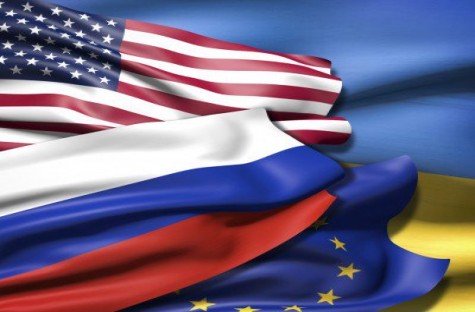
Özge Nur Öğütcü, AVİM
BUSY FEBRUARY AGENDA: UKRAINE ON THE FOCUS
Three very important meetings took place last week that deserve high attention by the international community: Munich Security Conference which was held between the dates 6-8 February, Minsk Summit on 12th of February (started in the evening on 11th of February) and NATO Defense Ministers Meeting which was held on 5th of February. All three meetings are linked to each other because of common security concerns of the Euro-Atlantic Countries but mainly Ukraine was a hot topic at the meetings: increasing tensions and crisis in Ukraine, security and stability of Eastern borders of Euro-Atlantic region.
Some NATO member countries such as Poland and Lithuania were trying to draw attention to the security concern in this region for a while. Coming from the latest developments the main motivation of the member countries is to put both in the southern and eastern region on the table with a special attention and improve NATO’s capabilities as NATO should be ready to response any threats, from anywhere and anytime. At the meeting NATO focused on the new strategy called “Readiness Action Plan” giving more detail about the capabilities, military bases and main focus areas. Readiness Action Plan was declared in September right after the NATO’s Wales Summit which was organized in September, 2014.[1] The main idea behind this new plan is to get prepared to tackle new threats emerging from beyond the southern and eastern borders, being able to give a quick response to the crisis and provide security guarantees both NATO member countries and partners, to a certain extent, that are in a close collaboration with NATO. NATO Secretary General Jens Stoltenberg summed up this strategy by saying that the decisions would “ensure that we have the right forces, in the right place, at the right time.”[2] In the framework of the plan, there will be two forces responsible from providing stability and security in the eastern and southern borders of NATO: “NATO Response Force” (NRF) which currently consists of 30.000 troops[3] will be enhanced and a new joint task force within NRF called “Spearhead Force” will be established as a multi-national force consisting of approximately 5.000 units.[4] Moreover, headquarters of the Multinational Corps Northeast in Szczecin, Poland will be improved as the capabilities should be a hub for regional cooperation, while command systems of the capabilities in the Baltic States and Poland, eastern border to Euro-Atlantic Alliance, will be provided via this headquarter.[5]
The Secretary General of NATO stated that being prepared and taking measures do not necessarily mean that NATO will adopt a policy against Russia. NATO’s Secretary General said in many occasions that NATO is willing to cooperate with Russia but only if Russia respects international law and territorial integrity of Ukraine: “A strong NATO is essential if we are to engage Russia with confidence. A constructive NATO-Russia relationship would benefit the Euro-Atlantic community. And the entire international order. But international rules must be respected – not rewritten. And certainly not violated.”[6]
Russian officials see this new plan as a countermeasure against Russia’s policy on Ukraine. For Russian officials, West[7] (as Russian officials refer to) ignores Russia’s security concerns and ties with the countries in Eastern Europe, today namely Ukraine. Whereas increasing capabilities in the Eastern border, although being aware of the fact that this region is important for Russia within her “near abroad” policies, might increase the tension, it will also increase NATO’s credibility among NATO Member countries showing that NATO will take measures to be ready to face challenges anytime and anywhere in Euro-Atlantic Region. However, this act might increase Russia’s skepticism over West, damage trust and put the relations on the bases of “insecurity” which will have a negative long-term effect. This process is a good example of “security dilemma” theory.
Another very important meeting, the annual Munich Security Conference was held in Munich, Germany. The conference provides a forum of discussion for very critical security issues of high relevance concerning the international community, particularly crisis in Ukraine but as well as developments in the Middle East, changing nature of security threats and extremist acts by religious groups such as ISIS[8]. There are a few important points that need to be underlined: Russia and “West” made attributions to Helsinki Act signed in 1974[9] to support their own positions stating that there is a violation of the UN Charter and Helsinki principles, US officials adopted a stronger language than EU officials stating that their aim is neither to weaken Russia nor giving damage to Ukrainian people, but Biden made it very clear that US will not give up on Ukraine (neither Russia) “(…)President Putin has to make a simple, stark choice: Get out of Ukraine or face continued isolation and growing economic costs at home.”[10]At the same speech Biden also touched upon energy security issue, recent TTIP[11] agreements, importance of NATO and the need for contributions to NATO’s budget from member states in order to improve NATO’s capabilities. US and EU countries might have further discussions on the budget issues and crisis management methods concerning Russia. Considering the damage caused by the Euro-Crisis and recently the effects of the developments in Greece, need for new budget strategies to tackle the emerging unconventional threats will be a challenge for the Alliance.
Clearly, EU uses a softer tone when it comes to relations with Russia compared to the US. This has at least two reasons: first, the crisis in Ukraine has direct economic and political impact on the EU; second, EU member states and the Union in general is highly dependent on Russia for energy imports, a major factor which Russians do not hesitate to use if her interests are neglected. At her speech High Representative of the Union for Foreign Affairs and Security Policy / Vice-President of the Commission Federica Mogherini underlined the fact that EU is ready to consider all options, from economic sanctions to dialogue with Russian officials, to find an urgent solution to the crisis in Ukraine. She stated that “…EU’s relations with Russia had been partnership for prosperity and security.”[12] Thus, Mogherini underlines the importance of dialogue, while however EU’s determination to “never” compromise in the situation of violation of international principles and law. [13]
Foreign Minister of Russia, Sergey Lavrov also made an interesting speech at the 51st Munich Security Conference. It was an important self-expression in terms of understanding the Russia’s motivations behind her actions in her “near abroad” region. He stated that even though Western officials claim that Russia is the party violated UN Charter and Helsinki principles, it was Western countries themselves who undermined the “structure of stability” [14] through their actions in Yugoslavia, Iraq, Libya, and NATO’s “expansion” (as Russia perceives) policies – meaning NATO’s increasing number of deployments around the region that Russia calls “near abroad”. These developments put relations between Russia and the West in a situation that the spirit of “illusions and beliefs of the winners of the cold war”[15] has not been overcome. According to FM Lavrov, for this reason the idea of “common European home” which aims to create an environment with the mutual respect and work of Russia and European Union, to provide stability and peace particularly among Commonwealth of Independent States (CIS) failed.[16] He highlighted that Russia’s interests and ties with CIS have been ignored by West. On the most critical topic of “self-determination” in Crimea, he referred to the case of Kosovo, which is frequently mentioned by the Russians. In reply to a question Lavrov also said that “the Nuremberg-based Ukrainian rating agency GfK Ukraine has recently conducted an opinion poll in Crimea. The survey shows that over 90 percent of Crimean residents support the peninsula’s reunification with Russia. Only two percent said they were against it, and another three percent admitted they so far don’t have a clear idea of what is going on.”[17] He also stated that there was no referendum took place in Kosovo, as well as in Germany for unification. This is how Russia is justifying the results of the referendum in Crimea, trying to show that the referendum had a legal base and was a more legit action comparing to the results in Kosovo and Germany. He is basically trying to justify the annexation by saying that it was“self-determination” right because it was a decision taken by the people of Crimea with their free will.
Despite the different tones of the officials, apparently all parties display keen interest to keep channels of communication open and seek options to find a mutually acceptable solution to the current crisis in Ukraine. Neither Russia nor EU can afford disruption in mutual multilateral relations in the medium and long run resulting from the crisis in Ukraine. Even though Russia seems to approach Asia particularly China to find new markets[18], Europe continues to keep its place as the major importer for Russian economy[19]. The most important issue to be solved is putting interests and concerns of the all concerned parties on the table.
The Minsk Summit, which was held on 12th of February aimed to address humanitarian crisis in Ukraine. Main topics were: withdrawal of the forces, legislative regulations on decentralization of Ukraine and new dialogue forms among EU Countries, Ukraine and Russia. 'Normandy 4' - The leaders of Germany, France - as the mediator parties - Russia and Ukraine – reached a ceasefire agreement after a 15-hour long meeting. According to the ceasefire, heavy weapons of Ukrainian army in the territories of separatists – mainly Donetsk and Luhansk - are expected to be withdrawn and in return, separatists are required to retreat back to the border that was drawn at the previously held Minsk Summit in September.[20] The process is expected to take 14 days starting from Sunday, at 00:00 on 15th of February.[21] François Hollande, President of France, stated that there is still a long way to go, but a ceasefire is a good beginning and will make the situation better.[22] He added that it was a long debate, but in the end, both sides agreed to “compromise”. Moreover decentralization of Ukraine and renewing the banking system according to the new governing model were presented as promising terms for future possible peaceful resolution. According to SputnikNews “(the)he Minsk deal calls for legislation on the special status of the southeastern regions of Donetsk and Luhansk. Ukrainian parliament, Verkhovna Rada, must pass a bill on the special status of Donbas within 30 days, the document reads.”[23] European Council Chair Donald Tusk commented on the Minsk Summit saying that: “I welcome the development. It gives hope, but hope is not enough”[24]. Johannes Hahn, Commissioner for European Neighbourhood Policy and Enlargement Negotiations also stated on his official twitter account that he is hoping for “…durable ceasefire and swift withdrawal of heavy weapons from Eastern Ukraine.” Even Petro Poroshenko, President of Ukraine, said that “The main thing which has been achieved is that from Saturday into Sunday there should be declared, without any conditions at all, a general ceasefire”[25] which was the sign of a general optimistic spirit on the outcome of the Minsk Summit. Right after the summit IMF took an important step in this direction; IMF declared the new aid plan for Ukraine, according to which a $17.5 billion funding within the framework of a “new financial rescue plan” will be provided for the recovery of Ukrainian economy. [26]
There is a disagreement on how to deal with Russia among EU Countries and US. While US adopted a tougher stand on the issue, EU countries considering their geological location – closer to the crisis – and dependency on Russian gas, showed more willingness to solve the problem with a dialogue. US officials mentioned sending arms to Kiev in order to support Ukrainian government several times; however, EU countries particularly Germany, wanted to solve this problem via other instruments mainly heavy economic sanctions and other diplomatic tools. According to some scholars the way the West deals with the crisis in Ukraine is about the role of United States in Europe[27]. But it is also about Europe’s and Russia’s roles in the Eastern Europe and South Caucasus. Countries in these regions have different preferences. For instance; Armenia and Belarus decided to continue with Eurasian Union, which is not a compatible agreement with EU’s Association Agreements and Association Agreement and the Deep and Comprehensive Free Trade Area with their current structure, coming from security perceptions even though Armenia have strong military ties with Russia – but also cooperating with NATO as well - experienced problems with Russian soldiers in Gyumri, where the only Russian military base in the Caucasus is located. Georgia stands on a very critical and sensitive point after the war with Russia, having strong relations with West namely European Union and NATO. Azerbaijan with rich resources trying to build balanced relations both with Russia and the West but also deals with Nagorno-Karabakh conflict which makes the stability and security concerns even more fragile in the region. EU is trying to build different forms of relations via various channels; meanwhile Russia is coming up with new projects and offers within the framework of Eurasian Union. Therefore, it is true that US and EU adopted different positions towards the current crisis in Ukraine, but it is not only about role of US in Europe, it is also about how EU – Russia’s neighbor - will choose to handle the relations with Russia and its “near abroad” in the long run.
Even though a ceasefire agreement has been reached at Minsk Summit, Western leaders are cautious with their future plans and long-term policies towards particularly Eastern Europe. Crisis in Ukraine made it clear one more time that the Western leaders should be careful with their Neighborhood and partnership strategies and take Russia’s reactions into account. A possible chain of effects starting in the Ukraine threatens stability in the wider region such as Eastern Europe – Moldova is one of the fragile cases, Balkans and Caucasus because of the complex nature of security perceptions, societal dimensions, economic ties, energy dependency and relations of CIS countries - plus Georgia, which withdrew from CIS in 2006 - both with each other and with powerful actors such as Russia, EU, NATO and United States.
[1] Ozge Nur Ogutcu, “RUSSIA AND THE WEST: ASSESMENT OF THE CURRENT DEVELOPMENTS”, AVİM, 15 Oct. 2014, http://www.avim.org.tr/analiz/en/RUSSIA-AND-THE-WEST:-ASSESMENT-OF-THE-CURRENT-DEVELOPMENTS/3671
[2] NATO, “Defence Ministers agree to strengthen NATO’s defences, establish Spearhead Force”, 06 Feb. 2015, http://www.nato.int/cps/en/natohq/news_117188.htm
[3] NATO, NATO’s Readiness Action Plan, Factsheet, Feb. 2015
[4] ibid
[5] NATO, “Statement by the NATO Defence Ministers on the Readiness Action Plan”, 5 feb. 2015, http://www.nato.int/cps/en/natohq/official_texts_117222.htm
[6] NATO, “Secretary General: Situation in Ukraine is critical, NATO supports peace efforts”, 06 Feb. 2015, http://www.nato.int/cps/en/natohq/news_117319.htm
[7] In this context, Russian officials use the term “West” to make an attribution to European Union and NATO as institutions and member countries
[8] Besides the situation in Ukraine and relations between NATO-Russia, as a common agenda item both Mogherini and Stoltenberg draw attention to hybrid security threats. Considering the developments on the global level, an uncertain and a complex future with changing nature of security perceptions and threats is one of the concerns. At the Munich Security Conference NATO Secretary General Stoltenberg divided his speech into 3 parts: Collective Defense and new NATO Forces and improving current military capabilities in an efficient way, developments in the neighboring regions from the Balkans to Afghanistan and NATO-Russia relations.For further information and NATO SG’s speech: [8] NATO, “Speech by NATO Secretary General Jens Stoltenberg at the Munich Security Conference”, 06 Feb. 2015, http://www.nato.int/cps/en/natohq/opinions_117320.htm
[9] CONFERENCE ON SECURITY AND CO-OPERATION IN EUROPE FINAL ACT, Helsinki 1974, http://www.osce.org/mc/39501?download=true
[10] White House, “Remarks by the Vice President at the Munich Security Conference”, 07 Feb. 2015, http://www.whitehouse.gov/the-press-office/2015/02/07/remarks-vice-president-munich-security-conference
[11] The Transatlantic Trade and Investment Partnership (TTIP), For further information: http://ec.europa.eu/trade/policy/in-focus/ttip/
[12] EEAS, “Speech by High Representative/Vice-President Federica Mogherini at Munich Security Conference”, 08 Feb. 2015, http://eeas.europa.eu/statements-eeas/2015/150208_01_en.htm
[13]High Representative/Vice-President of the European Commission Federica Mogherini continued her speech adding the current situation in Syria, “inter-connected” crises in the North Africa and Middle East (MENA), nuclear talks with Iran, relations with Western Balkan countries – mainly dialogue between Kosovo-Serbia, current situation in Libya and EU’s partnership strategies, http://eeas.europa.eu/statements-eeas/2015/150208_01_en.htm
[14] Ministry of Foreign Affairs of Russian Federation, “Foreign Minister Sergey Lavrov delivers a speech and answers questions during debates at the 51st Munich Security Conference, Munich, February 7, 2015”, 07 Feb. 2015, http://www.mid.ru/brp_4.nsf/0/4E7CDDD252FDEF1F43257DE60031E493
[15] ibid
[16] ibid
[17] ibid
[18] For further information regarding to agreements between China and Russia on energy: Bloomberg, “Russia, China Add to $400 Billion Gas Deal With Accord”, 10 Nov. 2014, http://www.bloomberg.com/news/articles/2014-11-10/russia-china-add-to-400-billion-gas-deal-with-accord
[19] For the facts and figures please see Eurostat Report: Energy production and imports, http://ec.europa.eu/eurostat/statistics-explained/index.php/Energy_production_and_imports
[20] Aljazeera Türk, “Ukrayna'da ateşkes kararı”(Ceasefire Decision in Ukraine), 12 Feb. 2015, http://aljazeera.com.tr/haber/ukraynada-ateskes-karari
[21] RT News, “Ukraine peace deal: Ceasefire starting February 15, removal of heavy weapons”, 12 Feb. 2015, http://rt.com/news/231571-putin-minsk-ukraine-deal/
[22] ibid
[23] SputnikNews, “Heavy Artillery Withdrawal in Donbas Should Be Completed Within Two Weeks”, 12 Feb. 2015, http://sputniknews.com/politics/20150212/1018155443.html#ixzz3RX15h7Vf
[24] RT News, “'Normandy 4' Ukraine peace talks in Minsk LIVE UPDATES”, 12 Feb. 2015, http://rt.com/news/231327-minsk-peace-talks-updates/
[25] Vladimir SOLDATKIN and Pavel Polityuk, “Glimmer of hope" for Ukraine after deal at Minsk peace summit”, 12 Feb. 2015, http://in.reuters.com/article/2015/02/12/ukraine-crisis-idINKBN0LG0HB20150212
[26] Agence France-Presse / Hurriyet Daily News, “IMF, Ukraine in deal for $17.5 billion bailout: Lagarde”, 12.02.2015, http://www.hurriyetdailynews.com/imf-ukraine-in-deal-for-175-billion-bailout-lagarde-.aspx?pageID=238&nID=78253&NewsCatID=344
[27] Jan Techau, Carnegie Europe, “European Security After Ukraine, 10 Feb. 2015, http://carnegieeurope.eu/strategiceurope/?fa=59025
© 2009-2025 Center for Eurasian Studies (AVİM) All Rights Reserved
No comments yet.
-
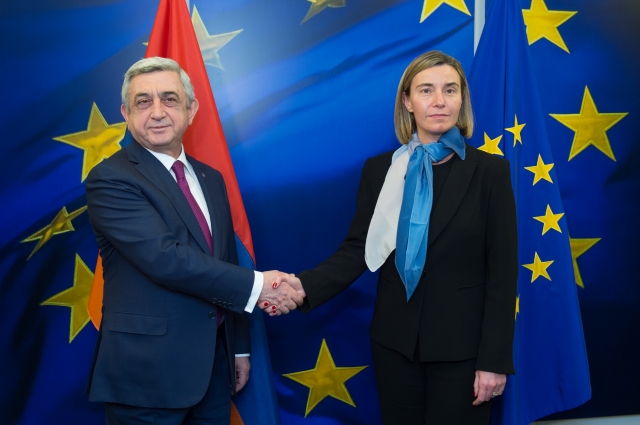 A NEW PAGE FOR ARMENIA-EU RELATIONS?
A NEW PAGE FOR ARMENIA-EU RELATIONS?
Özge Nur ÖĞÜTCÜ 06.04.2017 -
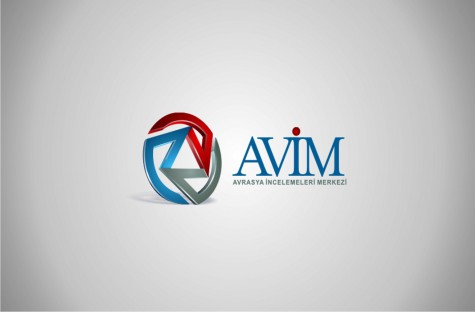 ARMENIA: RUSSIA’S “NEAR ABROAD” IN THE EAST - Özge Nur ÖĞÜTCÜ
ARMENIA: RUSSIA’S “NEAR ABROAD” IN THE EAST - Özge Nur ÖĞÜTCÜ
Özge Nur ÖĞÜTCÜ 28.04.2015 -
TURKIC COUNCIL AND EURASIAN COOPERATION IN THE LIGHT OF DEVELOPMENTS IN THE REGION
Özge Nur ÖĞÜTCÜ 24.02.2015 -
 ARMENIA IN EUROVISION 2015
ARMENIA IN EUROVISION 2015
Özge Nur ÖĞÜTCÜ 19.02.2015 -
 BUSY FEBRUARY AGENDA: UKRAINE ON THE FOCUS
BUSY FEBRUARY AGENDA: UKRAINE ON THE FOCUS
Özge Nur ÖĞÜTCÜ 22.02.2015
-
 CAN SREBRENICA GENOCIDE BE COMPARED TO THE EVENTS OF 1915 WITHIN THE SCOPE OF FREEDOM OF EXPRESSION?
CAN SREBRENICA GENOCIDE BE COMPARED TO THE EVENTS OF 1915 WITHIN THE SCOPE OF FREEDOM OF EXPRESSION?
AVİM 16.12.2019 -
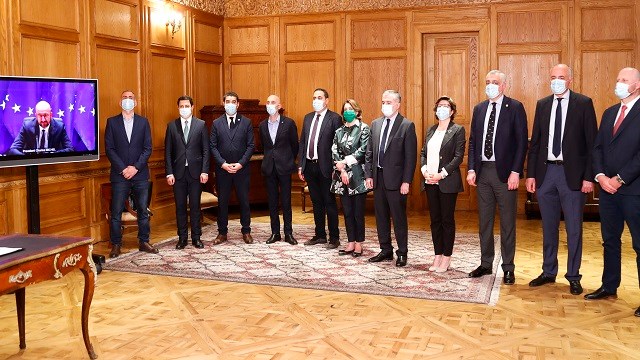 THE POLITICAL DEADLOCK IN GEORGIA HAS COME TO AN END
THE POLITICAL DEADLOCK IN GEORGIA HAS COME TO AN END
Ceyda ACİCBE 06.05.2021 -
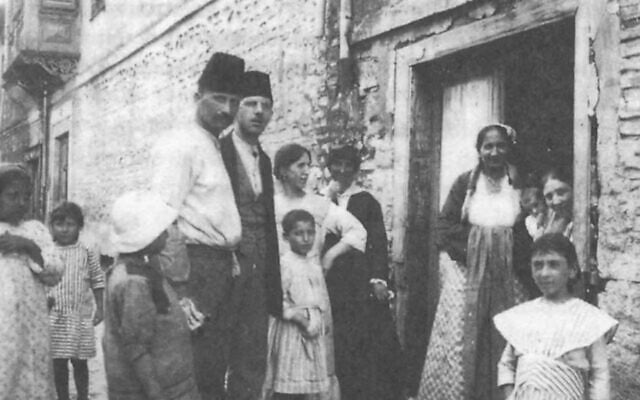 ANOTHER BLATANT DISTORTION OF HISTORICAL FACTS
ANOTHER BLATANT DISTORTION OF HISTORICAL FACTS
AVİM 23.10.2025 -
 THE AZERBAIJAN-ARMENIA PEACE PROCESS AND THE IMPACTS OF LOBBIES
THE AZERBAIJAN-ARMENIA PEACE PROCESS AND THE IMPACTS OF LOBBIES
Tuğçe TECİMER 18.12.2024 -
MARTYR DIPLOMATS
Oya EREN ÖZER 10.06.2012
-
25.01.2016
THE ARMENIAN QUESTION - BASIC KNOWLEDGE AND DOCUMENTATION -
12.06.2024
THE TRUTH WILL OUT -
27.03.2023
RADİKAL ERMENİ UNSURLARCA GERÇEKLEŞTİRİLEN MEZALİMLER VE VANDALİZM -
17.03.2023
PATRIOTISM PERVERTED -
23.02.2023
MEN ARE LIKE THAT -
03.02.2023
BAKÜ-TİFLİS-CEYHAN BORU HATTININ YAŞANAN TARİHİ -
16.12.2022
INTERNATIONAL SCHOLARS ON THE EVENTS OF 1915 -
07.12.2022
FAKE PHOTOS AND THE ARMENIAN PROPAGANDA -
07.12.2022
ERMENİ PROPAGANDASI VE SAHTE RESİMLER -
01.01.2022
A Letter From Japan - Strategically Mum: The Silence of the Armenians -
01.01.2022
Japonya'dan Bir Mektup - Stratejik Suskunluk: Ermenilerin Sessizliği -
03.06.2020
Anastas Mikoyan: Confessions of an Armenian Bolshevik -
08.04.2020
Sovyet Sonrası Ukrayna’da Devlet, Toplum ve Siyaset - Değişen Dinamikler, Dönüşen Kimlikler -
12.06.2018
Ermeni Sorunuyla İlgili İngiliz Belgeleri (1912-1923) - British Documents on Armenian Question (1912-1923) -
02.12.2016
Turkish-Russian Academics: A Historical Study on the Caucasus -
01.07.2016
Gürcistan'daki Müslüman Topluluklar: Azınlık Hakları, Kimlik, Siyaset -
10.03.2016
Armenian Diaspora: Diaspora, State and the Imagination of the Republic of Armenia -
24.01.2016
ERMENİ SORUNU - TEMEL BİLGİ VE BELGELER (2. BASKI)
-
AVİM Conference Hall 24.01.2023
CONFERENCE TITLED “HUNGARY’S PERSPECTIVES ON THE TURKIC WORLD"









